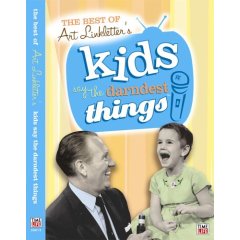 “I have a sister who is eleven years older than I. Actually, I heard from my mother that I should have another sister who is just one year old than I. I asked my parents and grandparents a lot times about where did she go or did she die. From my mother’s mood, I guess she didn’t die but she was abandoned by my parents. Why? Because at that time, my family was so poor to afford three children, and boys mean more than girls to a family which I completely disagree with. Thus, I have never seen her in my life. I wish she would live better than I and we could meet each other again. I am looking for her, I hope I can find her.”
“I have a sister who is eleven years older than I. Actually, I heard from my mother that I should have another sister who is just one year old than I. I asked my parents and grandparents a lot times about where did she go or did she die. From my mother’s mood, I guess she didn’t die but she was abandoned by my parents. Why? Because at that time, my family was so poor to afford three children, and boys mean more than girls to a family which I completely disagree with. Thus, I have never seen her in my life. I wish she would live better than I and we could meet each other again. I am looking for her, I hope I can find her.”
Their stories, like China’s history for the last three generations (and longer), are remarkable. Some are heartbreaking. Others are heartwarming. Still others, like those of many of my students in Nebraska, are surprisingly upbeat. The variety in their life stories – again, as is also true of my students in Nebraska – is stunning.
My students in a summer course at the Shanghai University of Finance and Economics shared their brief autobiographies as an initial assignment. I assign the task to get a sense of their writing skills and to get to know them a bit. I ask where they hope their studies will take them and what they want to get out of the course. As in Nebraska, I find a blend of young-adult idealism, hopefulness and candor in their work.
Some of their stories are extraordinary, though, and they open a window onto China’s recent history:
 “All of the members in my entire family are born in Shanghai, and my grand grandparents and grandparents, they came through the Cultural Revolution, which is also mentioned in the yesterday’s Ted video. During that ten years, it seems like nobody need to work, according to what my grandfather have told me, and the national economy backed off. National income lost about 500 billion yuan, according to the online statistics, and people’s living standards and personal education has been destroyed. While my grandparents suffered a lot because of the chaos in the upper politics, my parents and I have already got the great benefit from the reform and opening policy. All of us are well-educated and have more working opportunities than ever no matter how fierce the competition is in today’s job market. Those who are about the similar ages as me, which are also called millennials professionally, actually enjoy the fruits that the great development in China has brought us.”
“All of the members in my entire family are born in Shanghai, and my grand grandparents and grandparents, they came through the Cultural Revolution, which is also mentioned in the yesterday’s Ted video. During that ten years, it seems like nobody need to work, according to what my grandfather have told me, and the national economy backed off. National income lost about 500 billion yuan, according to the online statistics, and people’s living standards and personal education has been destroyed. While my grandparents suffered a lot because of the chaos in the upper politics, my parents and I have already got the great benefit from the reform and opening policy. All of us are well-educated and have more working opportunities than ever no matter how fierce the competition is in today’s job market. Those who are about the similar ages as me, which are also called millennials professionally, actually enjoy the fruits that the great development in China has brought us.”
Their tales also shed light on China’s present and future:
“I was born in a little village in Zhejiang province. My mother and my father are all local residents in this village, but they came to Shanghai to set up their own business when I was about two … My mother and my father are retailers selling glasses in Shanghai. Their business is successful now. They have expanded their business to eight chain stores now which was unimaginable at the beginning of the business, because my grandfather and grandmother are all farmers with little income and they had little money for the business when they first came to Shanghai, a city full of opportunities and attractiveness to them at that time.
‘My parents lived a tough life at the beginning of their business. My father was once time cheated by his fellow-villager when his business just started to improve, who suddenly disappeared with all my father’s savings… I really admire them for setting up their own business so successfully…. But things aren’t going well these years. The industry has been going downhill since the rise of E-business in Chinese. One of the chain stores has been shut down because it wasn’t able to earn profit. I was asked to help at the day the store was shut down .The store was decorated beautifully and it cost a lot, but at that day they had to be moved out of that store … My parents told me that it was harder and harder to run a business nowadays…. They plan to shrink their business and end it when they retire. This arises my interest in business and economics, and that is why I chose to enter Shanghai University of Finance and Economics.”
 Some come from very modest backgrounds, as the children of farmers:
Some come from very modest backgrounds, as the children of farmers:
“I know how many people in China are still in poor today, cause I know how many people are still struggling for a better life. Chinese people, especially the farmers, are trying their best to fight against corruption of the government, discrimination of the citizen, destruction of the bad weather, low price of agricultural products, low pay in the factories, the inequality of education.
“There are too many things we need to do, and I want to contribute to the positive changes of my family, my homeland, and my country. I got much help from the society, and I want to do something helpful to society, that’s where my worth lies… I want to get a wider vision. I want to know more about the world I used to hate business as I think that it is just a chase for money, but now I think that only through business can our people get wealthy, so I want to know more about the business world, what’s it like, how does it work, how can we work in the process and make people get wealth through the process.”
Others, hailing from comfortable backgrounds, expect to do even better than their parents in life:
“I come from a well-off family. My father is a salesperson who lacks high-level education but is pretty experienced in marketing in the environmental protection industry. I am very proud of him and he is my hero who built up from nothing and made every effort to offer the best to my family. My mother is the woman who stands at the back of him. She works more than a housewife would do and takes good care of both my father and me. Since I was little, I have travelled a lot with my parents around the country partly thanks to the requirement of my father’s job. In the rest of my life, I would love to walk farther, enjoy more beautiful sceneries and accompany my parents to travel all over the world with the gratitude they brought to me in my childhood. To be a better one, man needs to experience more.”
Their powerful stories make me want to serve them better as a teacher, even of a short-term course. If I can provide some insights into economics and business, I may give them something that helps them long after their school days end. Such is my hope and ambition anyway.








